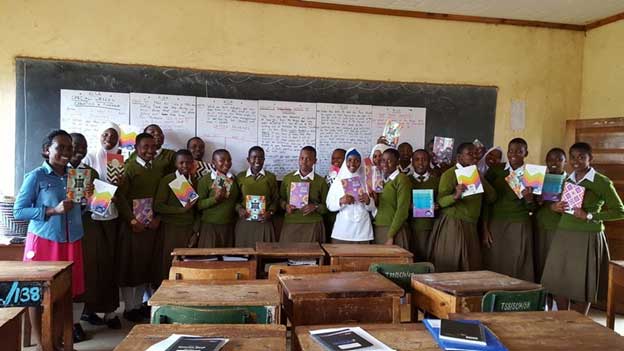On World Youth Skills Day, Don’t Forget the Importance of Soft Skills

DENVER, Colorado, Jul 13 (IPS) - The international community will be commemorating World Youth Skills Day on July 15.
It's no secret that under pandemic lockdown for so many months, young people around the world have coped in tremendous ways. They have found new outlets for learning and creative channels for developing and using their skills.
Young people like Mary, who kept her school subjects fresh through a group study via WhatsApp; Florence, who filled her time with an online professional development course to help improve her resume and elevator pitch; and Gift, a young girl who taught herself to make ice cream via YouTube and now aspires to open her own business someday.
Young people are adaptable, resilient.
But those are learned skills, and not every young person has an opportunity to learn them. In Tanzania, it is common for girls to grow up being told that they are weak, unimportant, and destined to remain in the domestic sphere as mothers and wives.
Only 39 percent of girls in Tanzania are lucky enough to attend school. Those who do face significant financial, cultural, and environmental challenges that can undermine their ability to make the most of their secondary school opportunity, resulting too often in dropout.
If you grow up thinking you are weak and unimportant, those thoughts stay with you. We believe what we are told. Which is why "soft" skills, such as resilience, inner strength, confidence, internal motivation, and leadership are so essential – especially for a young woman. If a girl is taught to understand her worth, her potential, and given the skills and tools to pursue her dreams, she is unstoppable.
Soft skills are often not taught in the classroom, but they do need to be taught. In Tanzania, AfricAid supports a locally-led mentorship program for secondary school girls run by GLAMI (Girls Livelihood and Mentorship Initiative).
By pairing girls with university-educated Tanzanian women who once faced the same challenges as the girls they mentor, GLAMI bridges the gap between academics and a girl's ability to live the future she chooses for herself. In her mentor, a girl sees her own possibility.

GLAMI's four-year program for girls in lower secondary school is called Binti Shupavu, which translates to "courageous daughter" in Swahili. The program teaches study skills, personal leadership, health, and self-confidence with the goal of increasing graduation rates among vulnerable girls – which it does, by a remarkable 98 percent, compared to 69 percent national
For older students, the Kisa Project, which means "story" in Sawhili, is a leadership course that prepares young women in their last two years of secondary school to attend university and create positive social change in her community.
Only 3 percent of Tanzanian girls go on to tertiary education, but 97 percent of Kisa scholars do. Alumnae from both programs are more likely to complete school and advance their education, and less likely to become pregnant or be married at an early age. Graduates go on to start their own businesses and hold leadership positions in their communities.
Both programs build resilience, which has been shown to be a key factor in helping girls overcome challenges, leading to better emotional wellbeing and better outcomes later in life.
Resilience is what allows these scholars to bounce back from the myriad challenges they face – especially in times of COVID-19 – and to learn from these obstacles and become better prepared for future challenges.
Hard skills are important, too. Which is why GLAMI also provides girls with programming that helps them learn financial literacy, study skills, and time-management. Girls need resilience, confidence, and self-belief in addition to these practical skills if they are to succeed and become changemakers in their communities.
As UNESCO-UNEVOC leads the world in celebrating World Youth Skills Day on July 15, and highlighting the importance of equipping young people with skills for employment, decent work, and entrepreneurship, let's also highlight the need to give all of young people – especially girls – all of the skills they need to truly succeed.
Every girl has the potential to be a leader and every girl deserves to feel confident within and outside of the classroom. But first, she needs the right skills. And a mentor to show the way.
*Africaid works in close partnership with sister organization, GLAMI (Girls Livelihood and Mentorship Initiative), AfricAid also supports mentorship opportunities that help secondary school girls in Tanzania complete their education, develop into confident leaders, and transform their own lives and their communities
© Inter Press Service (2020) — All Rights ReservedOriginal source: Inter Press Service
 Global Issues
Global Issues